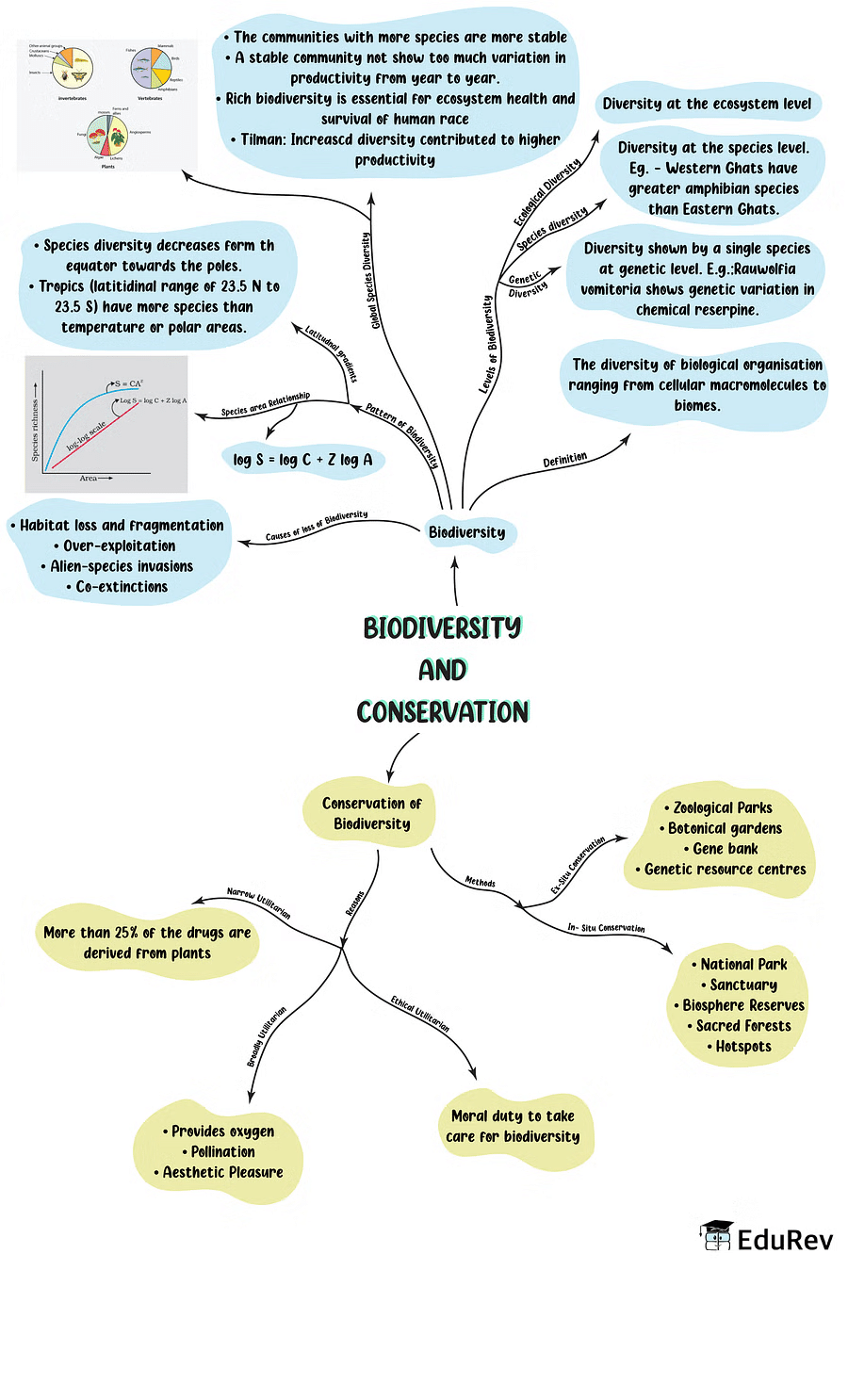NEET Exam > NEET Notes > Biology Class 12 > Mind Map: Biodiversity and Conservation
Mind Map: Biodiversity and Conservation | Biology Class 12 - NEET PDF Download

The document Mind Map: Biodiversity and Conservation | Biology Class 12 - NEET is a part of the NEET Course Biology Class 12.
All you need of NEET at this link: NEET
|
59 videos|290 docs|168 tests
|
FAQs on Mind Map: Biodiversity and Conservation - Biology Class 12 - NEET
| 1. What is biodiversity and why is it important for conservation? |  |
Ans. Biodiversity refers to the variety of life forms, including plants, animals, and microorganisms, in a particular habitat or ecosystem. It is important for conservation because it plays a crucial role in maintaining the balance of ecosystems, providing ecosystem services such as pollination, nutrient cycling, and climate regulation. Biodiversity also has intrinsic value and is essential for human well-being, as it provides food, medicine, and recreational opportunities.
| 2. How does habitat loss affect biodiversity and conservation efforts? |  |
Ans. Habitat loss is one of the main drivers of biodiversity loss. When natural habitats are destroyed or degraded, many species lose their homes and are unable to survive. This can lead to a decline in biodiversity and disrupt ecological processes. Conservation efforts aim to protect and restore habitats to prevent further loss of biodiversity. By conserving habitats, we can provide suitable conditions for species to thrive and maintain healthy ecosystems.
| 3. What are the major threats to biodiversity? |  |
Ans. There are several major threats to biodiversity, including habitat loss and fragmentation, climate change, pollution, invasive species, and overexploitation of natural resources. These threats can have significant impacts on species populations and ecosystems. Conservation efforts focus on addressing these threats through measures such as protected areas, sustainable resource management, and reducing pollution to protect and preserve biodiversity.
| 4. How can individuals contribute to biodiversity conservation? |  |
Ans. Individuals can contribute to biodiversity conservation in various ways. Some actions individuals can take include reducing their ecological footprint by conserving energy and water, supporting sustainable agriculture and forestry practices, promoting wildlife-friendly gardening, and participating in citizen science initiatives. Additionally, individuals can raise awareness about the importance of biodiversity and advocate for policies and practices that protect and conserve it.
| 5. What is the role of international agreements in biodiversity conservation? |  |
Ans. International agreements play a crucial role in biodiversity conservation. One of the key agreements is the Convention on Biological Diversity (CBD), which sets goals and objectives for the conservation and sustainable use of biodiversity. It provides a framework for countries to work together and coordinate efforts to protect and conserve biodiversity. International agreements also facilitate the sharing of knowledge, resources, and best practices among countries, promoting global cooperation for biodiversity conservation.
Related Searches
















